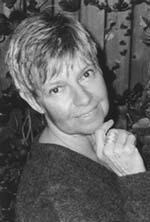Activism: Feminism
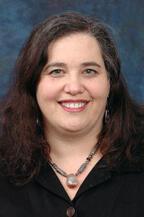
Lori Lefkovitz
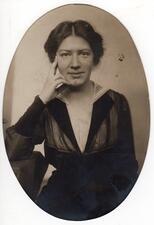
Käthe Leichter
A socialist feminist with a doctorate in political economy, Käthe Leichter was a prominent figure in “Red Vienna” during the interwar years. As a politician, labor organizer, and author, she dedicated her life to benefitting working-class women through social and political reform, and to the struggle against fascism.
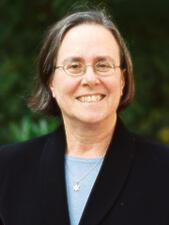
Anne Lapidus Lerner
Anne Lapidus Lerner is a pioneering scholar of Jewish women’s studies and was the first woman vice chancellor of the Jewish Theological Seminary. Lerner has established and fostered a long-lasting legacy through the teaching and mentorship of generations of students and dedication to Jewish learning. In 2017 she was awarded the Mathilde Schechter Award by the Women’s League for Conservative Judaism.
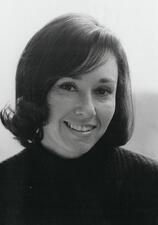
Marj Jackson Levin
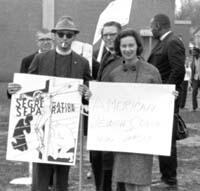
Jacqueline Levine
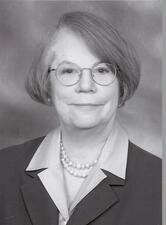
Ann Lewis
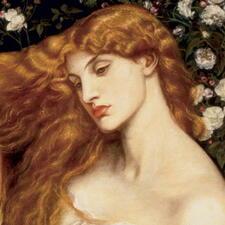
Lilith
Lilith’s character has evolved throughout the years. She began as a female demon common to many Middle Eastern cultures, was transformed by Medieval Jewry into Adam’s first wife, and was finally reclaimed by Jewish feminists as an icon.
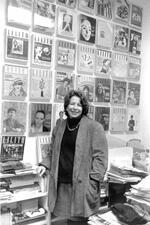
Lilith Magazine
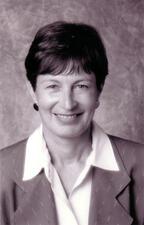
Belda Lindenbaum
Belda Lindenbaum was driven by the birth of her daughters to create new opportunities for Jewish women and girls.
Literature Scholars in the United States
Jewish women have been among the key figures in literary scholarship in the United States in the postwar period. Those entering the profession in the 1950s faced more difficulties as women than they did as Jews. Today, Jewish women are found in all corners of the profession, from feminist and queer theory to administration, critical race studies, and beyond.
Esther Luria
Esther Luria was a freelance journalist whose work appeared in many politically left-of-center Yiddish publications in the early twentieth-century United States. A socialist, a feminist, and a political activist, she was also an educator. She used her columns not only to advocate for the ideas in which she believed, but also to provide her mainly east European immigrant readers with a better understanding of their new environment.
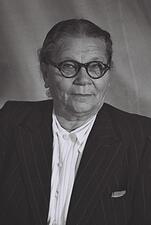
Ada Maimon (Fishman)
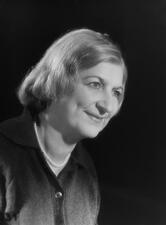
Clara Malraux
Journalist, essayist, novelist, and translator Clara Malraux spent her early life involved with antifascist activities and joined the French Resistance during World War II while in hiding with her daughter. Her work often describes her attempts to make a place for herself in a misogynistic and antisemitic society.
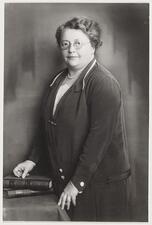
Rosa Manus
Rosa Manus was a Dutch leader in international women’s movements for suffrage and equality, as well as a vocal pacifist before and during World War II. As a Jew, she at times clashed with other feminist leaders.

Martha Ackelsberg
Martha Ackelsberg is a Jewish feminist lesbian anarchist activist, community leader, and academic. She is a leading scholar of anarchism and of anarchist women’s organizations of the Spanish Civil War. A founder and/or early leading visionary in pivotal United States Jewish developments, Ackelsberg has been a key voice shaping feminist, lesbian, and havurah contributions to twentieth- and twenty-first century Jewish life.
Maskilot, Nineteenth Century
Nineteenth-century maskilot were Jewish women proponents of the Haskalah, who wished to take part in the cultural and social revolution it preached. Despite assumptions that the Haskalah was an exclusively male movement, a small number of women read Hebrew literature, wrote in Hebrew, and regarded themselves as part of the Haskalah movement.

Nicolette Mason
Portrayals of Women in Israeli Media
Eve Merriam
Eve Merriam was an accomplished poet and playwright, best known for her books of children’s poetry that are beloved by audiences of all ages. Her life and career centered around New York, where she used her keen critical eye and unique tactile style to create poems and plays about urban life, social justice, feminism, and more.
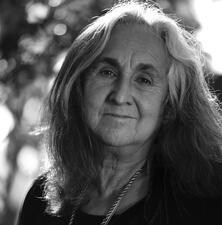
Deena Metzger
Mizrahi Feminism in Israel
Mizrahi feminism goes beyond the typical western scope of feminism to include the history and issues that concern women in the Middle East in Israel and in Arab and Muslim countries. An intersectional feminism, it is particularly sensitive to issues of race, class division, immigration, and ethnic discrimination.
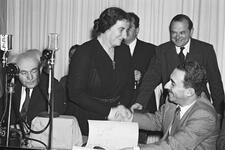
Mo'ezet Ha-Po'alot (Council of Women Workers)
The Mo’ezet Ha-Poalot was founded in 1921 as the women’s branch of the Histadrut, the General Federation of Workers in mandatory Palestine. In the name of women workers, the organization struggled for many years for equality in the eyes of the Histadrut, though it ultimately came to represent more broadly the interests of Jewish women in Palestine and Israel, including immigrants and housewives.
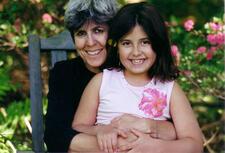
Cheryl Moch
Ellen Moers
Ellen Moers’ Literary Women (1976), the third and last book of her career, is a benchmark of feminist criticism. While early critics attacked Literary Women for its exclusive focus on women writers, her analysis of Mary Shelley and other women writers reshaped our understanding of their work.
